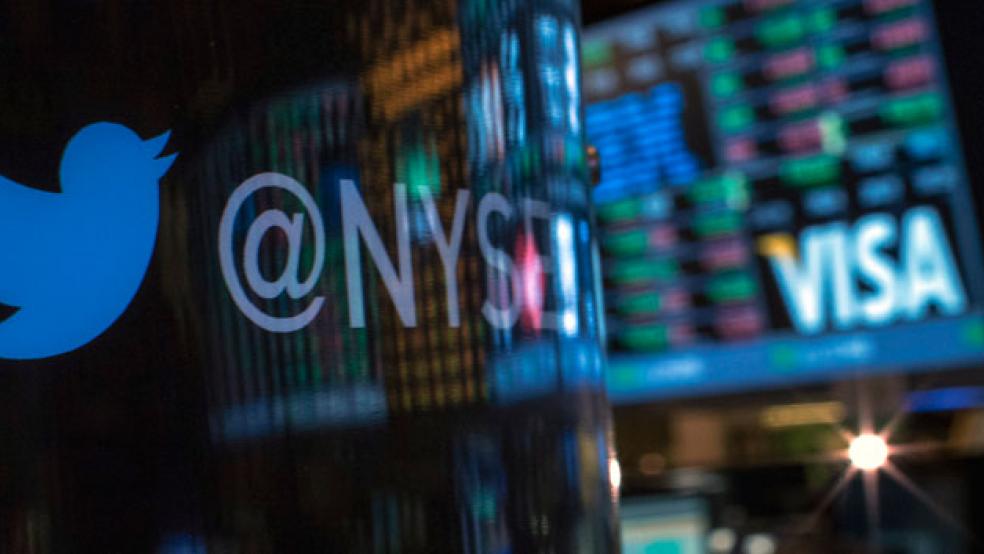Shares of Twitter (TWTR) surged 73 percent in their first day of trading Nov. 7, jumping from an IPO price of $26 to close at $44.90. In the month since that market debut, the stock price has gained just five cents.
Even that meager increase is impressive compared with, say, Facebook’s first month of trading, in which the social networking giant’s stock plunged 20 percent. And Twitter’s performance is all the more remarkable given that skeptics continue to raise questions about whether its growth rates are sustainable and whether expectations that it will be profitable in 2015 are realistic.
Anup Sirivastava, an associate professor of accounting at Northwestern University’s Kellogg School of Management, noted that profitability can be a “vague” concept. “A more valid question is – can Twitter generate positive free cash flows in 2015,” he wrote in an email. “And the answer is an emphatic no….”
As Twitter itself noted in its IPO filing, challenges abound. The company had about 232 million monthly users in the three months that ended September 30, a 39 percent year-over-year increase. Not surprisingly, Twitter expects to run into what financial pundits have dubbed “The Law of Large Numbers,” whereby the bigger a company gets the harder for it is to grow.
Twitter also is expensive to operate. Total costs and expenses were $95.7 million in 2010 and more than quadrupled to $394 million in 2012. Odds are that they will continue to skyrocket as the company buys more servers to meet the growing demand for its service, continues to surge both in the U.S. and overseas and adds employees in key areas such as advertising sales.
Related: The Force Behind Twitter's Meteoric Rise
Twitter skeptics include analysts at some of the very underwriters who took the company public. Analysts for Twitter’s five lead underwriters initiated coverage on the San Francisco-based company last Monday, on the first day after the so-called quiet period around the stock expired.
Those five took very divergent views on the stock.
As The Wall Street Journal noted, only two – Goldman Sachs and Deutsche Bank – initiated coverage on the microblogging site with a “buy.” Two others – Morgan Stanley and J.P. Morgan – issued neutral recommendations. Bank of America Merrill Lynch analyst Justin Pope, noting the company’s “attractive growth but unattractive valuation,” seemed far more impressed by the Twitter service than the company’s stock. He rated the shares “underperform,” the equivalent of a “sell.”
By conventional stock valuation measures, Twitter is clearly expensive. Since it doesn’t make money, investors can’t use the traditional metric of price-to-earnings ratio to measure the stock’s value. But the shares trade at 41.9 times sales, well above Facebook’s 16.2 multiple.
“Twitter's current valuation cannot be justified by its fundamentals,” Sirivastava writes. “The growth implicit in current valuation is not impossible to achieve, but is improbable. The question is not whether Twitter will one day be profitable. The question is what kinds of profits it needs to generate to justify its current valuation. These levels are too optimistic given any realistic growth trajectory.”
Related: The Real Problem with Twitter's All Male Board
Other analysts still have high hopes for Twitter. Indeed, Deutsche Bank is forecasting that Twitter can achieve a compound annual growth rate of 30 percent with revenue hitting $1.5 billion in 2015, more than double the $640.19 million analysts are forecasting for 2013.
Whether it can achieve those growth rates or not, Twitter does have plenty going for it. Analysts are impressed that company has become an integral part of many television shows and think it has potential for growth in retail. They also note its strong foothold in mobile given how many access the site with their tablets and smartphones.
Still, the question of profitability is bound to linger for a while. S&P Capital analyst Scott Kessler expects Twitter’s 2015 profit according to generally accepted accounting principals to be “modest.” He sees a tough road ahead for Twitter and expects it to lose 30 cents per share in 2013 and 14 cents a share in 2014.
“We think in many ways Twitter has a nice global platform,” he said. Kessler warned, though, that, “social media, technology and tastes do change. They can in many cases unexpectedly and quickly.”
Top Reads from The Fiscal Times:
- Twitter's IPO: Who's Making Big Money?
- Why Twitter's IPO Pop Could Fizzle for You
- Companies Sound the Alarm on Fourth-Quarter Earnings




